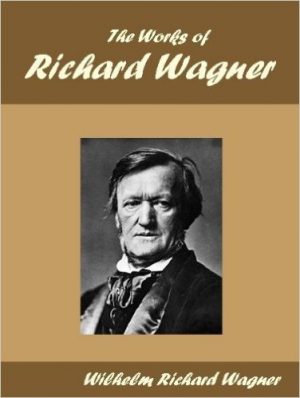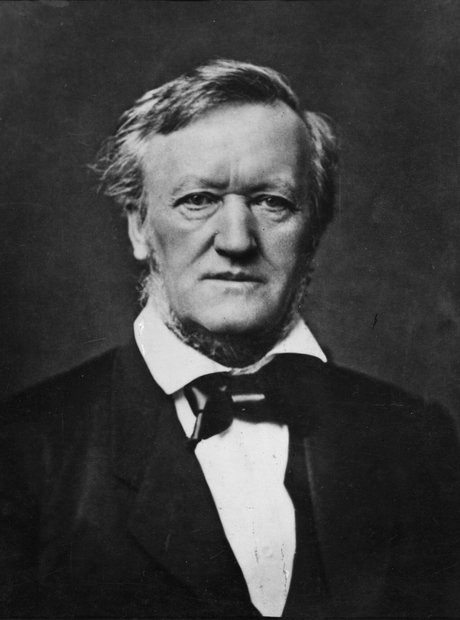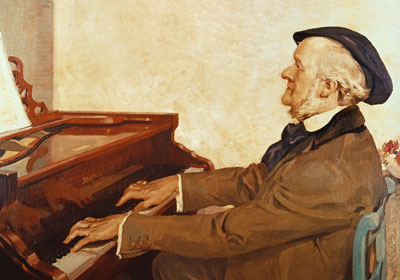


His thoughts on the relative contributions of music and drama in opera were to change again, and he reintroduced some traditional forms into his last few stage works, including Die Meistersinger von Nürnberg ( The Mastersingers of Nuremberg). It was here that the Ringand Parsifal received their premieres and where his most important stage works continue to be performed in an annual festival run by his descendants. Wagner had his own opera house built, the Bayreuth Festspielhaus, which embodied many novel design features. His Tristan und Isolde is sometimes described as marking the start of modern music. His advances in musical language, such as extreme chromaticism and quickly shifting tonal centres, greatly influenced the development of classical music. His compositions, particularly those of his later period, are notable for their complex textures, rich harmonies and orchestration, and the elaborate use of leitmotifs-musical phrases associated with individual characters, places, ideas or plot elements. Wagner realised these ideas most fully in the first half of the four-opera cycle Der Ring des Nibelungen ( The Ring of the Nibelung).
Richard wagner compositions series#
Initially establishing his reputation as a composer of works in the romantic vein of Weber and Meyerbeer, Wagner revolutionised opera through his concept of the Gesamtkunstwerk (“total work of art”), by which he sought to synthesise the poetic, visual, musical and dramatic arts, with music subsidiary to drama, and which was announced in a series of essays between 18.

Unlike most opera composers, Wagner wrote both the libretto and the music for each of his stage works. Wilhelm Richard Wagner (–13 February 1883) was a German composer, theatre director, polemicist, and conductor who is primarily known for his operas (or, as some of his later works were later known, “music dramas”). Wagner's masterpiece remains The Ring Cycle, which is made up of four different operas and takes more than fifteen hours to perform.\) Wagner died on February 13th 1883 after suffering a heart attack on holiday in Venice. Wagner's last completed opera was Parsifal from 1882, a typically epic work that told the story an Arthurian knight on the hunt for the holy grail.Įven though Wagner's music was controversial it was not as extreme as his anti-Semitic declarations, found most famously in his article Das Judenthum in der Musik (Judaism in Music), which notoriously led directly to Hitler's passionate espousal of his music. Written in 1859, Tristan und Isolde is another example of Wagner's operatic ideal of what he called the Gesamtkunstwerk ('Complete Art-Work').ĭie Meistersinger von Nürnberg from 1868 might not match The Ring Cycle for length, but it's still a hefty four-and-a-half hours long. He finally reached the conclusion, Götterdämmerung, in 1876. Wagner's most enduring work, Der Rin des Nibelungen (The Ring of the Nibelung), consists of four separate operas and took 26 years to complete. His opera career soon picked up speed - he completed Rienzi in 1840, The Flying Dutchman in 1843 and Tannhauser in 1845. Richard Wagner was born on May 22nd 1813 in the Jewish quarter of Leipzig.Īs a boy, he showed so little aptitude for music that he was the only child in his family not to receive piano lessons - he taught himself to play through Weber's Der Freischutz.Īt the age of 20, Wagner took a choirmaster position in Würzberg and composed his first opera, Die Feen, in 1833. The greatest musical visionary of the 19th century, or an insatiable megalomaniac who didn't know when to stop? Richard Wagner (1813–1883) was a German composer, conductor and theatre director who was primarily known for his operas.


 0 kommentar(er)
0 kommentar(er)
